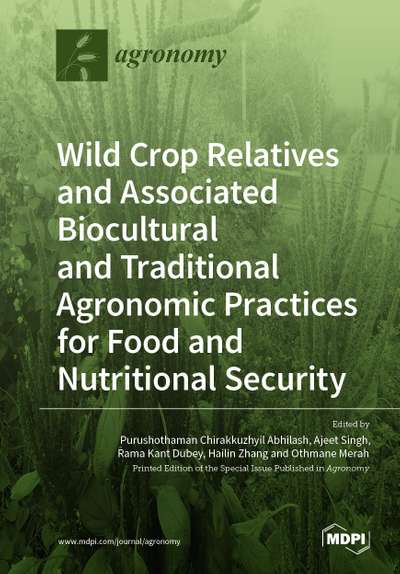Wild Crop Relatives and Associated Biocultural and Traditional Agronomic Practices for Food and Nutritional Security
Purushothaman Chirakkuzhyil Abhilash, et al.

The growing world population exerts tremendous pressure on our finite food resources. Since the lion's share of the global calorie intake is reliant upon a handful of plant species like rice, wheat, maize, soybean, and potato, it is the need of the hour to expand our dietary reliance to nutritionally rich but neglected, underutilized, and yet-to-be-used wild plants. Such wild plants also have ethnomedicinal and biocultural significance. Owing to their ecosystem plasticity, they can be easily cultivated in diverse soil systems, including marginal, degraded, and other disturbed areas. Due to these resilient attributes, they can be considered for large-scale cultivation. However, proper biotechnological interventions are important for removing the negative traits as well as for standardizing the mass multiplication and cultivation strategies of such species for various agro-climatic regions. This Special Issue, "Wild Crop Relatives and Associated Biocultural and Traditional Agronomic Practices for Food and Nutritional Security", was dedicated to showcasing the potential wild crop varieties of nutritional significance and associated biocultural knowledge from the diverse agroecological regions of the world and also to formulating suitable policy frameworks for food and nutritional security. The novel recommendations provided by this Special Issue can serve as a stepping-stone for utilizing wild and neglected crops as supplemental foods.
*Available as Download Only
MDPI Book Link (available for purchase)
Publication Details
- Published: 2020
- Publisher: Mdpi AG
- ISBN-10: 3039434004
- ISBN-13: 978-3039434008